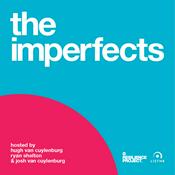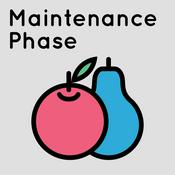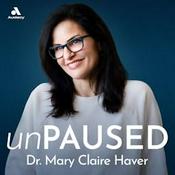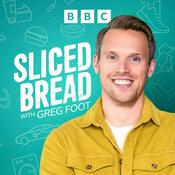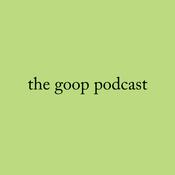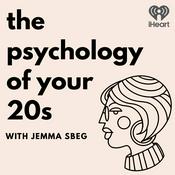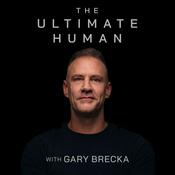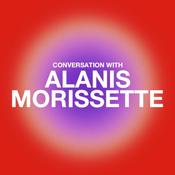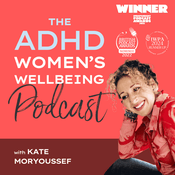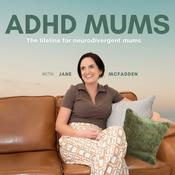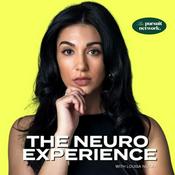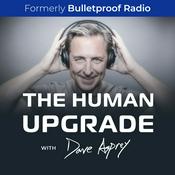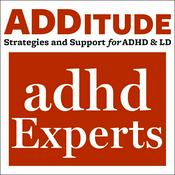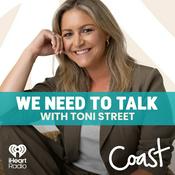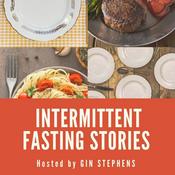Understanding Disordered Eating: Eating Disorder Recovery and Body Image Healing
Rachelle Heinemann
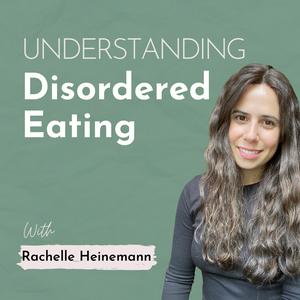
Latest episode
199 episodes
190. Unmet Childhood Needs & Eating Disorders: Healing the Roots, Not Just the Symptoms
10/2/2026 | 24 mins.If you've ever been told that you need to "heal the root" of your eating disorder, but no one ever really explained what that actually means, this episode is for you.
Maybe you've done the meal plans. The behavior tracking. The symptom management. And yet… something still feels unresolved. Fragile. Like the eating disorder quiets down for a while, only to resurface later in a different form.
In this episode, we slow the conversation way down and talk honestly about unmet childhood needs. Not as a way to blame parents, caregivers, or anyone else, but as a way to finally understand why your eating disorder made sense in the first place.
Tweetable Quotes
"Relapse isn't the end of recovery. It's a moment inside of it." - Rachelle Heinemann
"Eating disorders don't just happen. They happen within the context of the rest of your life." - Rachelle Heinemann
"When emotional needs aren't consistently met, we still develop strategies internally to help us survive." - Rachelle Heinemann
"You can stop the behaviors temporarily, but if the underlying emotional needs remain unmet, something else will pop up." - Rachelle Heinemann
"Healing means giving yourself now what you didn't get then." - Rachelle Heinemann
"Part of the process in therapy is creating a pause between the urge and the behavior." - Rachelle Heinemann
"Your behaviors make sense in the context that you grew up in." - Rachelle Heinemann
Resources
Group Training for Clinicians, led by Jack Heinemann.
Details:
• 6 weekly sessions (75 minutes each)
• Thursdays at 12pm EST
• Begins 2/12
• $85 per session
• Limited spots
Looking for more information? Email [email protected] or [email protected]
Grab my Journal Prompts Here!
Looking for a speaker for an upcoming event? Let's chat!
Now accepting new clients! Find out if we're a good fit!
LEAVE A REVIEW + help someone who may need this podcast by sharing this episode.
Be sure to sign up for my weekly newsletter here!
You can connect with me on Instagram @rachelleheinemann, through my website www.rachelleheinemann.com, or email me directly at [email protected]189. What To Do When Treatment Feels Stuck (For Clinicians) with Jack Heinemann, LCSW-R, BCD
03/2/2026 | 25 mins.In this episode of Understanding Disordered Eating, I'm joined by Jack Heinemann for a live, supervision-style conversation that explores what's often happening beneath the surface when therapists feel stuck. Rather than focusing on what to say or do next, we slow the work down and examine how unconscious relational patterns quietly organize the therapy relationship itself, shaping both the client's experience and the clinician's emotional response, often without either person realizing it.
This episode isn't about quick techniques or the perfect intervention. It's about learning how to think differently.
Resources
Group Training for Clinicians, led by Jack Heinemann.
Details:
• 6 weekly sessions (75 minutes each)
• Thursdays at 12pm EST
• Begins 2/12
• $85 per session
• Limited spots
Looking for more information? Email [email protected] or [email protected]
Grab my Journal Prompts Here!
Looking for a speaker for an upcoming event? Let's chat!
Now accepting new clients! Find out if we're a good fit!
LEAVE A REVIEW + help someone who may need this podcast by sharing this episode.
Be sure to sign up for my weekly newsletter here!
You can connect with me on Instagram @rachelleheinemann, through my website www.rachelleheinemann.com, or email me directly at [email protected]- Have you ever felt like you're living in a completely different reality than everyone around you? Like you're doing the hard, slow work of healing your relationship with food while the rest of the world seems to be shrinking overnight and talking about it nonstop? Feeling angry, jealous or left out is common, and you aren't alone if you're feeling this way too.
Right now, weight loss medications and GLP conversations are everywhere. They show up at dinner parties, in group chats, on social media, and even in casual neighborhood conversations. And if you're in eating disorder recovery or trying to practice intuitive eating, those moments can feel deeply uncomfortable, and even unfair.
Tweetable Quotes
"It can just feel really unfair, like, 'why do these people just get to go on this easy shot and have this quick fix and not me?'" - Rachelle Heinemann
"This idea of the eating disorder fixing our body image issues is the oldest in the book." - Rachelle Heinemann
"I think something that we have to understand is that weight loss doesn't necessarily equal happiness." - Rachelle Heinemann
"Their body is not a cue for me to abandon mine." - Rachelle Heinemann
"I'm allowed to want stability more than thinness." - Rachelle Heinemann
Resources
Grab my Journal Prompts Here!
Looking for a speaker for an upcoming event? Let's chat!
Now accepting new clients! Find out if we're a good fit!
LEAVE A REVIEW + help someone who may need this podcast by sharing this episode.
Be sure to sign up for my weekly newsletter here!
You can connect with me on Instagram @rachelleheinemann, through my website www.rachelleheinemann.com, or email me directly at [email protected] 187. Understand Hypothalamic Amenorrhea with Dr. Nicola Sykes, PhD and Gemma Lewis
13/1/2026 | 43 mins.You know when someone says, "Oh, that's normal", but something in your body clearly doesn't feel right? Maybe you've lost your period and brushed it off because you exercise a lot. Maybe a doctor waved it away. Maybe you've been praised for your discipline, your control, your "healthy" lifestyle, even while your body has been quietly asking for more.
In this episode, we're having an honest, deeply human conversation about hypothalamic amenorrhea (HA), disordered eating, and the ways diet culture disguises itself as wellness, especially in athletic, high-achieving bodies.
Tweetable Quotes
"It is not normal to not have a period." - Dr. Nicola Rinaldi
"I had prided myself on my body because I thought I was very healthy. What I came to realize was that I was not, and I was abusing my body in a lot of ways." - Gemma Lewis
"I told countless people in my life that I didn't have my period, and nobody had ever said that. Nobody had ever asked me, 'Are you not concerned about the long-term implications of this and what you're doing to your body?'" - Gemma Lewis
"Our society really encourages that. Our society encourages exercise more, eat less." - Dr. Nicola Rinaldi
"I Googled 'how can I get my period back without gaining weight'. There is no good answer out there." - Gemma Lewis
"HA can happen to anyone in any body size." - Dr. Nicola Rinaldi
"You are more than your body." - Dr. Nicola Rinaldi
Resources
Looking for a speaker for an upcoming event? Let's chat!
Now accepting new clients! Find out if we're a good fit!
Dr. Nicola Sykes website
Connect with Dr. Nicola Sykes on Instagram
No Period, Now What?
Period Recovery Community
REVEAL Study
Grab my Journal Prompts Here!
LEAVE A REVIEW + help someone who may need this podcast by sharing this episode.
Be sure to sign up for my weekly newsletter here!
You can connect with me on Instagram @rachelleheinemann, through my website www.rachelleheinemann.com, or email me directly at [email protected]- January has a way of making everything feel louder. The pressure to start over, "fix yourself", and come back "better" than before. If you've ever felt that quiet panic underneath all the New Year motivation, this episode is for you.
Instead of making a New Year's Resolution, we're making an anti-resolution.
Tweetable Quotes
"When we're under pressure, it's kind of impossible to make deliberate decisions and to really feel calm about it." - Rachelle Heinemann
"You don't need a dramatic reinvention to be worthy of the start of the year or even a 'fresh start'." - Rachelle Heinemann
"A lot of food-related resolutions or like body-related resolutions are rooted very much in shame, guilt, comparison, anxiety, fear of not being in control." - Rachelle Heinemann
"If you're thinking 'I need to change because there is something terribly wrong about me as a person'… even if it is the best resolution in the world, that is never gonna hold up." - Rachelle Heinemann
Resources
Grab my Journal Prompts Here!
Looking for a speaker for an upcoming event? Let's chat!
Now accepting new clients! Find out if we're a good fit!
LEAVE A REVIEW + help someone who may need this podcast by sharing this episode.
Be sure to sign up for my weekly newsletter here!
You can connect with me on Instagram @rachelleheinemann, through my website www.rachelleheinemann.com, or email me directly at [email protected]
More Health & Wellness podcasts
Trending Health & Wellness podcasts
About Understanding Disordered Eating: Eating Disorder Recovery and Body Image Healing
This show will explore the deeper meaning of our relationship with food. We dive into issues related to body image, restriction, bingeing, purging, compulsive exercise, and eating disorder related behaviors. We utilize ideas from psychoanalysis, the deep work therapy, to bring you answers about why you do the things you do and one step closer to a healthier relationship with food and yourself.
Podcast websiteListen to Understanding Disordered Eating: Eating Disorder Recovery and Body Image Healing, ZOE Science & Nutrition and many other podcasts from around the world with the radio.net app

Get the free radio.net app
- Stations and podcasts to bookmark
- Stream via Wi-Fi or Bluetooth
- Supports Carplay & Android Auto
- Many other app features
Get the free radio.net app
- Stations and podcasts to bookmark
- Stream via Wi-Fi or Bluetooth
- Supports Carplay & Android Auto
- Many other app features


Understanding Disordered Eating: Eating Disorder Recovery and Body Image Healing
Scan code,
download the app,
start listening.
download the app,
start listening.




